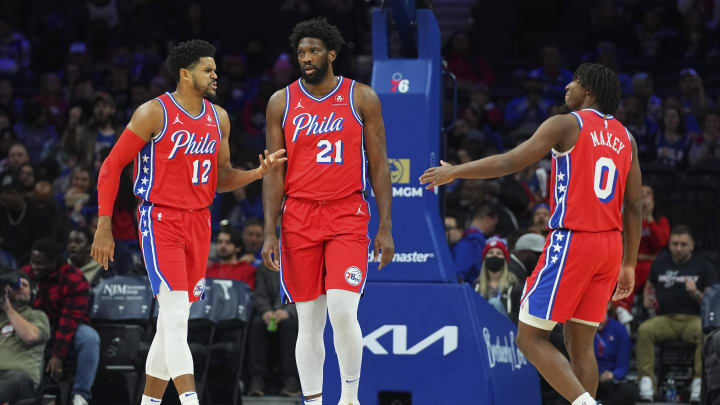Buying low on a player is a risky proposition.
It sounds nice on the surface: pay pennies on the dollar for a player, then get their top-end production and see a massive return on investment. From Kyle Lowry to Danny Green, the Toronto Raptors are no strangers to that move, and the payoff can be incredible.
There is also significant risk, however, because oftentimes “buying low” involves signing a player whose recent play has been disappointing, and much of the time — perhaps most of the time — that level of play never recovers. Last season the Raptors took a shot on Jalen McDaniels and he was even worse than the season before.
Teams have to be strategic in when to buy low and when to “pay up” for reliable contributions. A title contender is truly in the lurch with such a decision, often holding limited team-building tools and being forced to bargain shop, but needing to nail a “buy low” signing or trade in order to have someone to rely on when it matters.
Should the Toronto Raptors buy low?
The Toronto Raptors are in a much better position to buy low this summer, as the pressure to nail each pick is not present. They can “buy low” at a higher price point, they can make a riskier swing, they can load up on multiple such players. If all of them bust out the downside is that a Raptors team that should be ok with losing this season loses a few more games.
If they hit, however, the Raptors then hold an extremely valuable piece on the trade market, a player on a low-cost contract playing at a much higher level, and those are the kinds of players contenders will pay up for. Buy low, rehabilitate, sell high — it’s a model used by successful teams like the Oklahoma City Thunder and Utah Jazz in recent years to great success.
That brings us around to one buy-low candidate who could be a perfect target for the Toronto Raptors: Tobias Harris.
Much-maligned during his Philadelphia 76ers tenure due to an extremely large contract that certainly overpaid him, Tobias Harris is an unrestricted free agent and has a significant stigma attached to him after being overpaid for so long. The 76ers have much bigger plans than bringing back Harris, and a shaky end to this past season will only further depress his market.
Yet if you strip away the name and the narrative, you have a player that should be an option for many teams around the league. Harris averaged 17 points, 6.4 rebounds and 3.1 assists over the past four seasons in Philadelphia, shooting 37.6 percent from 3-point range with an overall true-shooting percentage of 58.4 percent. Even more impressively, Harris appeared in 279 games over that span; only a few dozen players topped that mark.
Harris is 6’8″ tall, with a track record as a solid defender, good rebounder and consistent shooter. He isn’t a $30 million per season player, and isn’t even a $20 million per season player, but once the tarnish of his onerous contract wears off, teams will wish they had signed Harris to a make-good contract in free agency.
The Toronto Raptors could be the team to take that chance, signing Harris to a short-term deal that allows him to rehabillitate his value and get back onto the market. Would a “2+1” contract (two guaranteed years plus a player option) at $40 million total work for both sides? It could start around $11 million and end around $15 million. The Raptors would add a valuable veteran player now at a number that doesn’t destroy their books, and if he hits, suddenly they have an extremely valuable trade chip at the deadline.
The fit of Harris even in the short-term is not a bad one; he and Scottie Barnes could pair in the frontcourt, or he could serve as the primary backup to both Barnes and RJ Barrett. His shooting would be a welcome addition to the lineup, as would his rebounding, and the Raptors won’t need him to play 30+ minutes per night.
Some buy-low opportunities are much lower than signing Harris would be; they are minimum signings with a sliver of upside. The investment in Harris is greater, but the upside is therefore greater, as is the likelihood of this turning out to be a shrewd move. Harris could be aging out of relevance and unable to get his career back on track, but more likely he will be a solid rotation forward who contending teams want to add at the trade deadline.
Why shouldn’t the Raptors be the team positioned to benefit from everyone else’s mistake?












